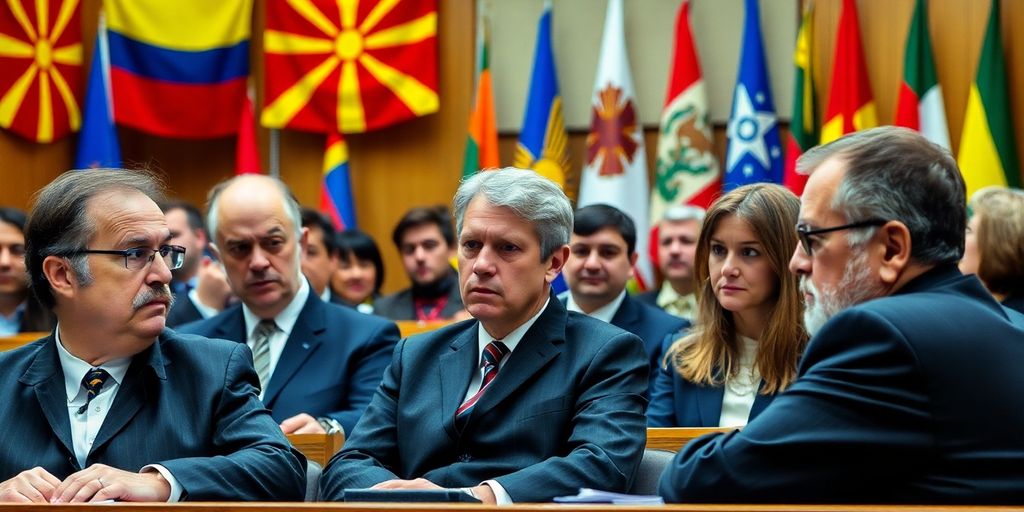North Macedonia’s Constitutional Court has postponed a ruling on a contentious language law, igniting fresh ethnic tensions in the country. The law, which designates Albanian as a second official language, has faced numerous legal challenges since its enactment in 2019, raising concerns among various ethnic groups.
Key Takeaways
- The Constitutional Court will hold a preparatory meeting to gather international expert opinions before making a decision.
- The law in question extends the official use of Albanian, impacting communication in public institutions.
- Ethnic Albanian leaders express fears that changes to the law could exacerbate inter-ethnic discord.
Background of the Language Law
In 2018, North Macedonia passed a law that expanded the official use of the Albanian language, particularly in areas with significant ethnic Albanian populations. This legislation was seen as a crucial step in implementing the 2001 peace agreement that ended a conflict between ethnic Albanian insurgents and Macedonian forces. The law allows for the use of Albanian in various public sectors, including municipalities, hospitals, and courts.
However, the law has faced opposition from the current governing party, VMRO DPMNE, which argues that it undermines national interests. Since its implementation, over 40 individuals and groups have filed 13 complaints challenging the law’s constitutionality, focusing on its parliamentary adoption process and specific provisions.
Court Proceedings and Reactions
During the recent court session, two judges, both ethnic Albanians, were absent, and a third judge, an ethnic Turk, excluded himself after his proposal to postpone the session was rejected. The head of the court, Darko Kostadinovski, indicated that a decision would be made within one to three months, following a preparatory meeting to hear from international experts.
Supporters of the Democratic Union for Integration (DUI), the main ethnic Albanian opposition party, gathered outside the court to protest the proceedings. DUI leaders warned that any changes to the language law could have "irreversible" consequences for the country’s multiethnic fabric. They have set up tents outside the court to demonstrate their commitment to defending the Albanian language.
Bujar Osmani, DUI’s vice-president, criticized the court’s decision to hold a preparatory session, claiming it reflects a monoethnic bias within the court. He asserted that the only acceptable outcome would be to reject all initiatives against the language law, emphasizing the party’s role as the legitimate representative of the Albanian community in North Macedonia.
Political Implications
The ongoing legal challenges and the court’s delay in ruling have intensified political tensions in North Macedonia. Prime Minister Hristijan Mickoski, leader of the VMRO DPMNE party, accused the DUI of provoking unrest and manipulating public sentiment. He suggested that the DUI’s actions are aimed at creating pressure on the court to achieve favorable outcomes.
In contrast, the Vlen alliance, a coalition of ethnic Albanian government partners, has criticized the DUI for what they describe as trickery in portraying themselves as defenders of the Albanian language. They assured the public that the language would be protected, regardless of the DUI’s claims.
Conclusion
The postponement of the ruling on the language law highlights the fragile ethnic dynamics in North Macedonia. As the court prepares to hear expert opinions, the potential for increased tensions remains high, with both political and social implications for the country’s diverse population. The outcome of this legal battle will be closely watched, as it could shape the future of interethnic relations in North Macedonia.






